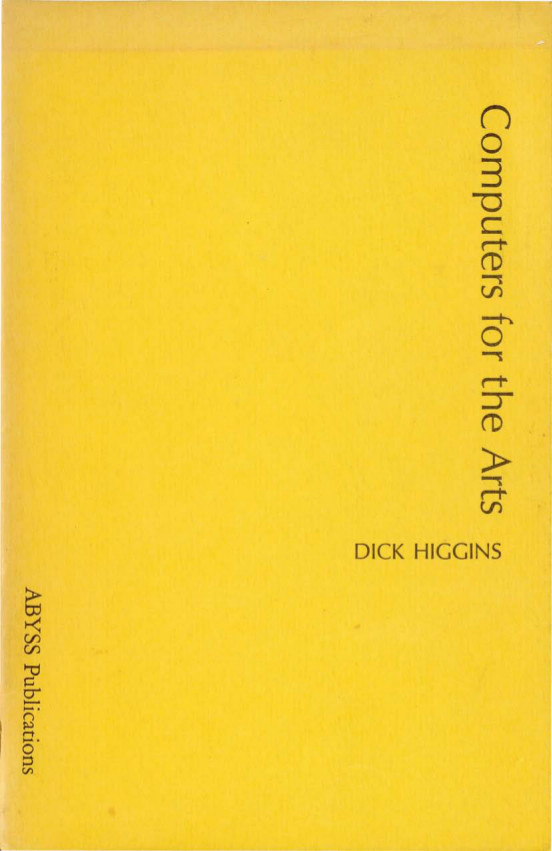Luciana Parisi: Contagious Architecture: Computation, Aesthetics, and Space (2013)
Filed under book | Tags: · abstraction, aesthetics, algorithm, architecture, cognition, computation, computing, cybernetics, design, evolution, feedback, infinity, information, interaction design, knowledge, media, metaphysics, networks, neural networks, philosophy, processing, randomness, sensors, software, space, temporality, time, topology, variation

“In Contagious Architecture, Luciana Parisi offers a philosophical inquiry into the status of the algorithm in architectural and interaction design. Her thesis is that algorithmic computation is not simply an abstract mathematical tool but constitutes a mode of thought in its own right, in that its operation extends into forms of abstraction that lie beyond direct human cognition and control. These include modes of infinity, contingency, and indeterminacy, as well as incomputable quantities underlying the iterative process of algorithmic processing.
The main philosophical source for the project is Alfred North Whitehead, whose process philosophy is specifically designed to provide a vocabulary for “modes of thought” exhibiting various degrees of autonomy from human agency even as they are mobilized by it. Because algorithmic processing lies at the heart of the design practices now reshaping our world—from the physical spaces of our built environment to the networked spaces of digital culture—the nature of algorithmic thought is a topic of pressing importance that reraises questions of control and, ultimately, power. Contagious Architecture revisits cybernetic theories of control and information theory’s notion of the incomputable in light of this rethinking of the role of algorithmic thought. Informed by recent debates in political and cultural theory around the changing landscape of power, it links the nature of abstraction to a new theory of power adequate to the complexities of the digital world.”
Publisher MIT Press, 2013
Technologies of Lived Abstraction series
ISBN 0262018632, 9780262018630
392 pages
For a New Computational Aesthetics: Algorithmic Environments as Actual Objects lecture by Parisi (2012, video, 72 min).
Reviews: Lecomte (Mute, 2013), Ikoniadou (Computational Culture, 2014).
PDF (24 MB, updated o 2021-10-28)
Comments (2)Dick Higgins: Computers for the Arts (1970)
Filed under booklet | Tags: · art, chance, code, computer art, language, literature, poetry, programming, randomness

Includes Fortran program and printout of Hank and Mary, A Love Story, A Chorale by Higgins, realized by Higgins and James Tenney; and program and printout of Proposition No. 2 for Emmett Williams by Alison Knowles, realized by James Tenney.
Publisher Abyss Publications, Somerville/MA, June 1970
ISBN 091185603X, 9780911856033
17 pages
PDF
PDF (2-up version, added on 2014-2-5, via Lori Emerson)
A Million Random Digits with 100,000 Normal Deviates (1955/2001)
Filed under book | Tags: · computing, cryptography, mathematics, probability, randomness, statistics

“Not long after research began at RAND in 1946, the need arose for random numbers that could be used to solve problems of various kinds of experimental probability procedures. These applications, called Monte Carlo methods, required a large supply of random digits and normal deviates of high quality, and the tables presented here were produced to meet those requirements. This book was a product of RAND’s pioneering work in computing, as well a testament to the patience and persistence of researchers in the early days of RAND. The tables of random numbers in this book have become a standard reference in engineering and econometrics textbooks and have been widely used in gaming and simulations that employ Monte Carlo trials. Still the largest published source of random digits and normal deviates, the work is routinely used by statisticians, physicists, polltakers, market analysts, lottery administrators, and quality control engineers. A 2001 article in the New York Times on the value of randomness featured the original edition of the book, published in 1955 by the Free Press. The rights have since reverted to RAND, which reissued a new edition of the book in its original format, with a new foreword by Michael D. Rich, RAND’s Executive Vice President.”
Originally published by Free Press, Glencoe, Illinois, 1955
With a foreword by Michael D. Rich
Publisher Rand Corporation, 2001
ISBN 0833030477, 9780833030474
628 pages
Reviews (Amazon.com)
PDF (47 MB, updated on 2018-3-17)
PDF (a file containing the Table of Random Digits in plain text form, TXT)
PDF (a file containing the Table of Random Normal Deviates in plain text form, TXT)

